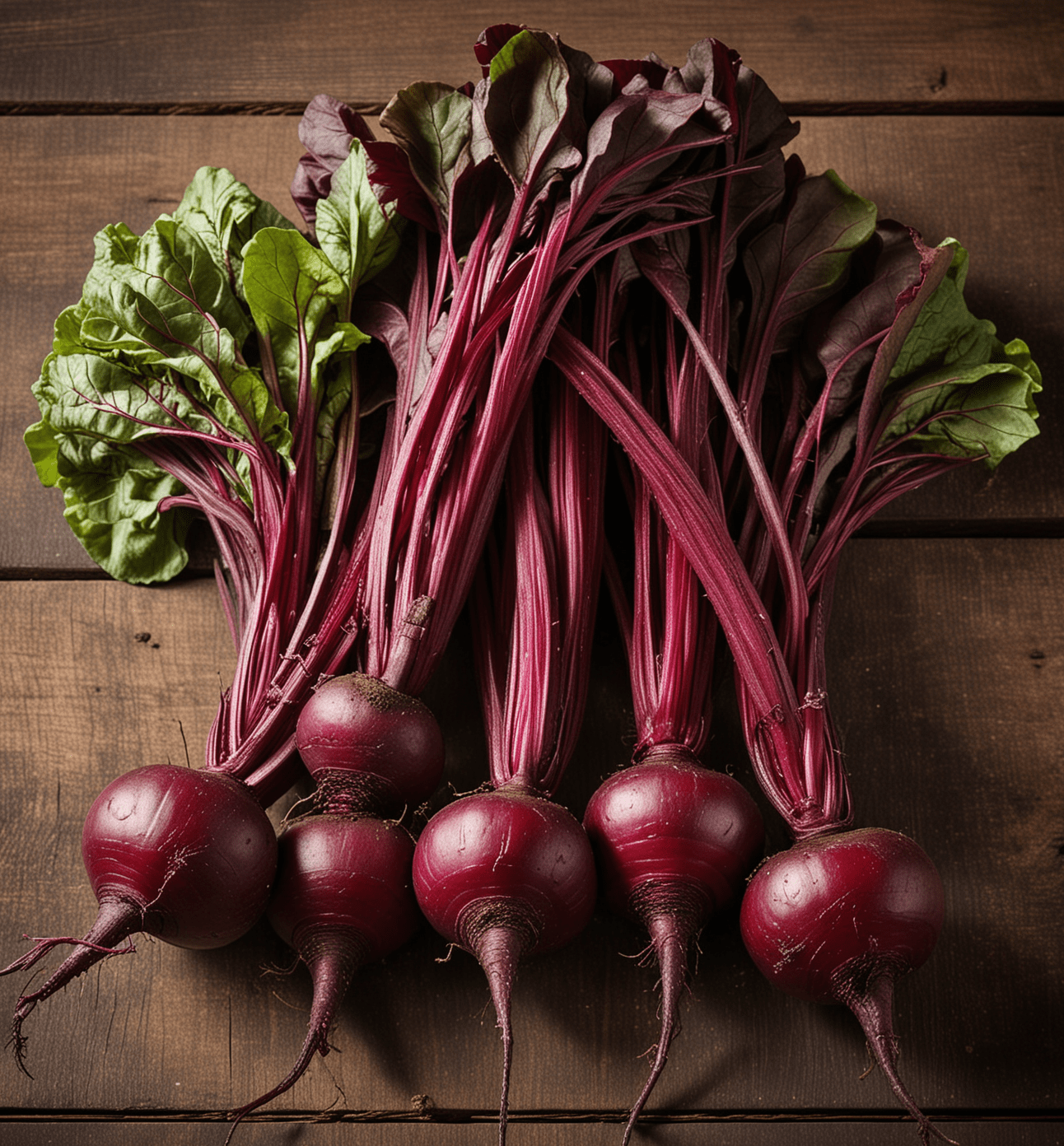Introduction
Beetroot, a superfood that should be promoted worldwide for better health. It is an excellent example of a food that has a significant impact on nutrition. This vibrantly colored vegetable, which is loaded with beneficial nutrients, has an earthy flavor.
A lot of research has shown that eating beetroot daily is good for your health and wellbeing. It can help you work out better and keep your heart, brain, liver and skin healthy.
Table of Content
- Beetroot is good for heart health
- Beetroot improve sports performance
- Improve brain function
- Anti-Inflammatory properties
- Detoxification nature
- Beetroot prevents Cancer
- Helps to governs weight management
- Beetroot Improves digestive health
- Beetroot supports liver function
- Healthy skin and hairs
- Conclusion
- Frequently asked questions (FAQs)

Image 1: Beetroot the brightly colored vegetable
Let’s look at the ten best things about beetroot and how it might help you live a happy and healthier life.
Beetroot is good for heart health
It contains nitrates, which are compounds that dilate blood vessels and lower blood pressure. Regular use reduces the risk of heart disease by improving blood flow and lowering cholesterol.
Beetroot improve sports performance
The nitrates in beetroot can improve sports performance by getting more oxygen to muscles, which makes them stronger and more durable. Runners and bikers have found that drinking beetroot juice helps them do better. It is natural and works quite well.
Improve brain function
The nitrates are also good for both the body and the brain. According to studies, eating beetroot may improve brain function by bringing more blood to the brain. This may help with remembering and making decisions effectively.
Anti-Inflammatory properties
It also have betalains in it, which are strong antioxidants that can also help with inflammation. These chemicals help lower inflammation in the body, which is linked to many long-term illnesses like heart disease and gout.
Detoxification nature
Beetroot is a natural detoxifier that helps the body get rid of waste and toxins. Its high fiber level helps digestion and regular bowel movements, which also helps the body get rid of toxins.
Beetroot prevents Cancer
Betalains and vitamin C are two antioxidants that are found in beets. They help protect cells from damage caused by free radicals, which lowers the risk of getting cancer. Beetroot has been shown in studies to have promise in preventing some types of cancer, like colon cancer.
Helps to governs weight management
This root is great for people who are trying to control their weight because it is low in calories and fat and high in fiber. Its high fiber level makes you feel full for longer time, which helps you eat fewer calories overall.
Beetroot Improves digestive health
Beetroot’s fiber helps keep your digestive system healthy by keeping you regular and preventing constipation. Beetroot also has a chemical called betaine that helps keep the stomach’s pH level healthy. This lowers the risk of gut problems like acid reflux.
Beetroot supports liver function
Beetroot is famous for cleaning out the liver, which helps the body get rid of toxins and keep the liver working well. Regularly eating beetroot can help protect the liver from harm and improve its health in general.
Healthy skin and hairs
Beetroot has antioxidants and nutrients, like vitamin C and iron, that are good for your skin and hair. Eating beets can help fight the signs of aging, make skin more flexible, and boost hair follicles, which can lead to beautiful skin and hair.
Conclusion
Adding beetroot to your diet on a regular basis can help your health in many ways, from protecting your heart to improving your athletic ability and more. The fact that this veggie can be eaten raw, cooked, or made into juice makes it a nutritional powerhouse. You can take conscious steps toward better health and well-being by using the power of beets. Why wait then? Start getting the many health benefits of beetroot today to be better tomorrow.
Frequently asked questions (FAQs)
How do I select and store beetroot?
Choose beetroot that is firm, smooth, and free of blemishes. Avoid soft, shriveled, or damaged ones. Look for greens that are fresh and vibrant if they’re still attached. Store beetroot in the refrigerator, preferably in a plastic bag, and they can last for up to 2-3 weeks.
Can beetroot juice change the color of urine or stool?
Yes, consuming beetroot, particularly in large quantities or as juice, can cause a harmless condition called beeturia. Beeturia may cause urine or stool to turn pink or red. It’s due to the presence of betalain pigments in beetroot, which can be absorbed by the body and excreted unchanged. While beeturia is usually harmless, it may indicate poor iron absorption in some individuals. If concerned, consult a healthcare professional.
Are beetroot leaves edible?
Yes, beetroot leaves, also known as beet greens, are edible and highly nutritious. They are rich in vitamins A, C, and K, as well as minerals like iron and calcium. Beet greens can be cooked similarly to spinach or Swiss chard and used in various dishes such as stir-fries, soups, or salads.
Is beetroot suitable for everyone, including pregnant women and children?
Beetroot can be a nutritious addition to most diets, including those of pregnant women and children. However, pregnant women should consult their healthcare provider regarding their beetroot consumption, especially if there are concerns about oxalate levels or any specific health conditions. For children, beetroot can be introduced gradually into their diets, considering their taste preferences and digestive tolerance.
Are there any potential side effects or allergies associated with beetroot consumption?
Although beetroot is generally safe for most people, some may experience allergic reactions or digestive discomfort. Additionally, individuals with kidney issues should consume beetroot in moderation due to its high oxalate content, which may contribute to kidney stone formation.


Leave a Reply